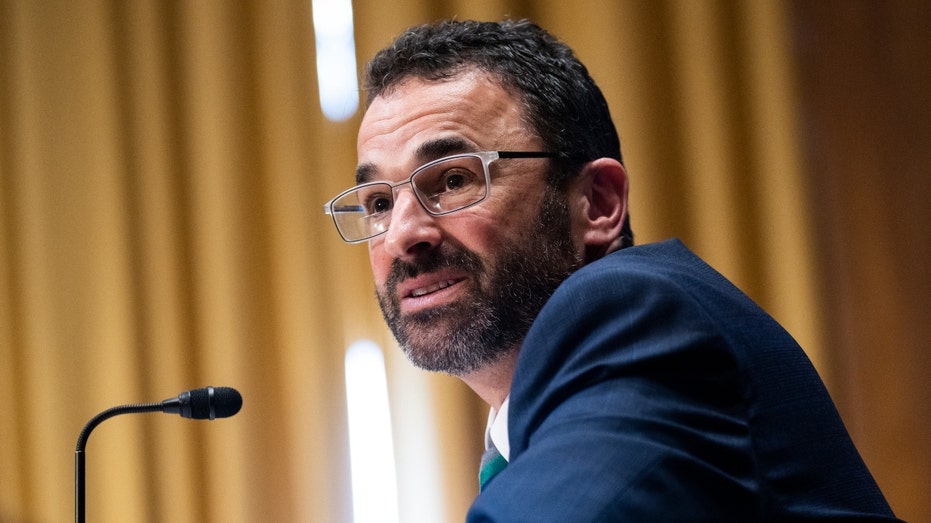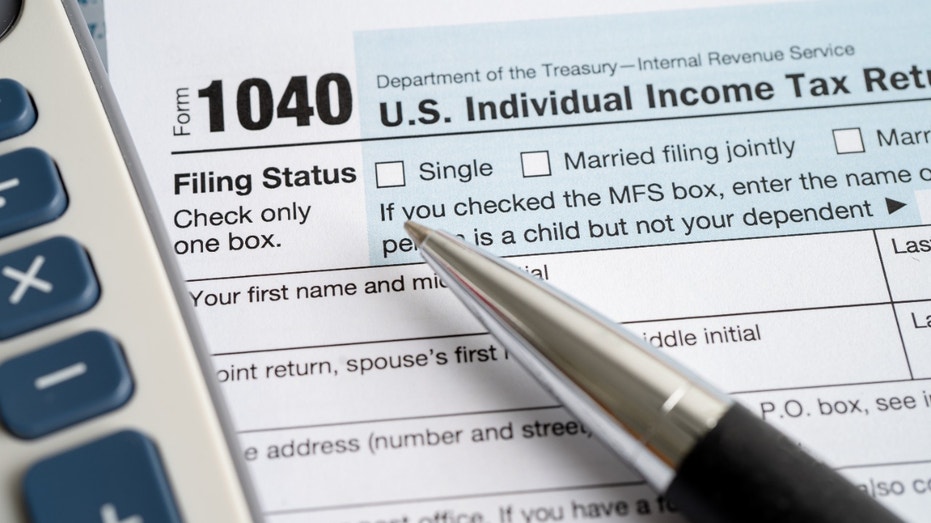New IRS crackdown on 'high-income' tax cheats owing hundreds of millions
The IRS is going after 25K people who earned more than $1M annually and 100K people with incomes of between $400K and $1M
Sen. John Thune demands answers from IRS over TikTok use despite ban
Sen. John Thune, R-S.D., discusses whether China stole U.S. tax information via TikTok on 'Varney & Co.'
The Internal Revenue Service (IRS) has announced it is clamping down on more than 125,000 cases of high-income earners who failed to file federal income tax returns since 2017 with the aim of recouping hundreds of millions of dollars in unpaid taxes.
Under the new non-filer initiative, the agency will start sending out non-compliance letters this week to 25,000 people who earned more than $1 million annually between tax years 2017 and 2021, and to over 100,000 people with incomes of between $400,000 and $1 million during those years.
In all of the above cases, the IRS says it received third-party information — such as through W-2 and 1099 forms — indicating these people received income in these ranges but failed to file a tax return.

Internal Revenue Service Commissioner Daniel Werfel. (Tom Williams/CQ-Roll Call, Inc via Getty Images / Getty Images)
THE IRS HAS DELIVERED 20M TAX REFUNDS SO FAR. THIS IS THE AVERAGE AMOUNT
IRS Commissioner Danny Werfel said the agency had limited resources to go after non-compliant earners in these income brackets since 2016 due to severe budget and staff limitations, but the passing of the Inflation Reduction Act has provided the necessary tools for the agency to carry out this latest enforcement.
The legislation was signed into law by President Biden in 2022.
"With the Inflation Reduction Act resources, the agency finally has the funding to identify non-filers, ensure they meet this core civic responsibility, and ultimately help ensure fairness for everyone who plays by the rules," Werfel said.
"At this time of year when millions of hard-working people are doing the right thing paying their taxes, we cannot tolerate those with higher incomes failing to do a basic civic duty of filing a tax return."
The IRS said the exact amount of unpaid taxes in these cases is uncertain as it is not aware of the potential credits and deductions these people may have.
The third-party information on these taxpayers, however, indicates financial activity of more than $100 billion.

The Inflation Reduction Act was signed into law by President Biden in 2022. (Chip Somodevilla/Getty Images | Alex Wong/Getty Images / Getty Images)
SOCIAL SECURITY RECIPIENTS COULD BE HIT WITH A SURPRISE TAX BILL THIS YEAR
Even with a conservative estimate, the IRS believes hundreds of millions of dollars of unpaid taxes are involved in these cases. At the same time, some non-filers may actually be owed a refund.
"If someone hasn’t filed a tax return for previous years, this is the time to review their situation and make it right," Werfel said. "For those who owe, the risk will just grow over time as will the potential for penalties and interest. These non-filers should review information on IRS.gov that can help and consider talking to a trusted tax professional as soon as possible."
The non-filer initiative is part of a larger effort underway with the IRS working to ensure large corporate, large partnerships and high-income individual filers pay the taxes they owe, the IRS says.
The agency says that over the past decade, it was unable to keep up with the increasingly complicated set of tools the wealthiest taxpayers use to shelter or manipulate their income to avoid taxes.

A blank 1040 tax return form from the IRS. (iStock / iStock)
CLICK HERE TO READ MORE ON FOX BUSINESS
The IRS says it is now taking "swift and aggressive action" to close this gap.
For example, the IRS is pursuing millionaires who have hundreds of millions of dollars in unpaid tax debt and has already collected $500 million owed by 1,600 millionaires.
Last week, IRS leadership said the agency will start up dozens of audits on businesses’ private jets and how they are used personally by executives and written off as a tax deduction, according to The Associated Press.
The IRS is also pursuing multimillion-dollar partnership balance sheet discrepancies and ramping up audits on more than 75 of the largest partnerships using artificial intelligence.





















